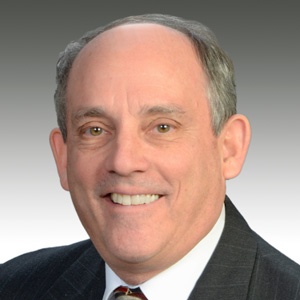
Gregory Doepke, CFP®, CAP® Senior Consultant Independent Advisor Representative
Whether you are intentional or not, you are creating your own personal and family legacy. Your legacy is what you leave behind when you pass on, and it reflects all the good you have done in this world. One of the measurable components of your legacy is the lasting impact you have through improving the lives of future generations.
If you are interested in planning and laying the groundwork for your legacy, there are vast resources to help you along the way. For starters, this blog will share with you how the donor-advised fund (DAF) can be used in a very generic way to help you create your own legacy. Specifically, we will look at several key items listed below:
- What is a donor-advised fund?
- When should you use a donor-advised fund?
- What are the main considerations in choosing a donor-advised fund?
What is a donor-advised fund?
A donor-advised fund is a charitable tool that is administered by a public charity to manage charitable donations on behalf of organizations, families and individuals. For the individual donor, it provides a great deal of flexibility in managing not only your charitable contributions and their timing, but also provides a flexible, easy and documented means of making grants to charitable organizations (501(c)(3) charities). With the recent Tax Cuts & Job Acts of 2017, DAFs have become increasingly popular due to the loss of tax itemizing, which in turn almost doubled the standard deduction. A DAF allows you to reap the maximum benefits of a charitable tax deduction in the funding year while payouts from the fund may be postponed.
When should you use a donor-advised fund?
A donor-advised fund may be used while living, at death or both. While living, a DAF can be used as a means to establish, structure and administer your and your families’ charitable values. It is a great tool to engage and bond with your children and your grandchildren through family-based philanthropy and perpetuate family values to create your legacy. A DAF is easy to set up with minimal (if any) cost and provides administrative and structural ease for ongoing charitable contributions and grants. At death, the existence of a donor-advised fund can serve as a means of continuing your legacy through successive generations. Children and grandchildren can act as advisors to the DAF, making recommendations for grants and distributing charitable contributions to organizations that embody the family values you all embrace.
Donor-advised funds can also be used creatively and as a way to supplement other charitable tools and techniques. For example, a family DAF can be the beneficiary of the remainder of a charitable remainder trust or as the recipient of a highly appreciated stock - either of a public or of a privately held company - when an owner is anticipating transitioning into retirement. The DAF can also be used as a means of offsetting the tax liability incurred in a Roth conversion.
What are the main considerations in choosing a donor-advised fund?
While on the surface it appears easy, there are a number of considerations that are important when selecting a donor-advised fund provider. As an individual donor, you want to be smart about choosing the provider for your DAF. There are several categories of sponsors for DAFs ranging from the commonly marketed DAFs sponsored by charitable branches of major financial institutions such as Vanguard, Fidelity and Schwab, to community foundations and independent providers such as the American Endowment Foundation or the National Philanthropic Trust. There are also technical and administrative details to consider regarding DAFs such as the minimum number amount of each grant, contributions, investment pools, administrative processes and the support given to donors with more complex assets such as privately held stock, real estate, art, collectibles and other illiquid assets.
Typically, individual donors approach their professional advisors—whether it’s their estate attorney, wealth advisor, accountant or a nonprofit professional—for guidance. As an individual donor, it is important to seek out independent, competent advisors who have your best interest—as a donor—at heart and want to help you make smart financial giving decisions. In some cases, your professional advisor may not have the expertise, the inclination or they might have a direct conflict of interest in the guidance they provide. It is important to find an independent resource that can help you meet your charitable intent and goals.
We have briefly touched on the DAF as a tool and technique for those with a generous heart. There are multiple ways that a DAF can be effectively used to create and perpetuate your personal legacy. As you can see, the smart use and application of the DAF can be highly effective for legacy creation as well as for minimizing income taxes. While some professional advisors may be familiar in a very limited way with DAFs, you may want to consider learning more about these funds. There is a vast amount of information on DAFs available on the Internet or through your local community foundation. Advisors in Philanthropy (www.advisorsinphilanthropy.org) is also a great resource for finding a professional that can help you with your individual charitable intent and legacy planning.
Gregory W. Doepke, CAP®, CFP® is an independent investment advisory representative with ACG Advisory Services, Inc. He is the owner and principal of Doepke Financial Advisory, LLC, a Virginia limited liability company that provides comprehensive wealth management, investment advisory and qualified plan consulting services for ACG Advisory Services and Actuarial Consulting Group, Inc.



